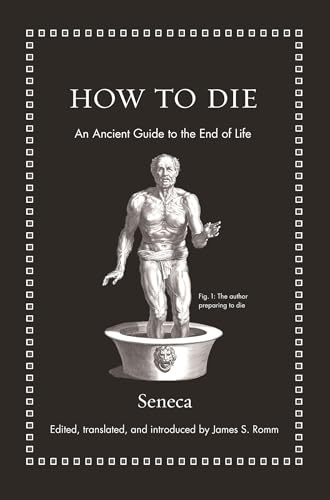How to Die
An Ancient Guide to the End of Life (Ancient Wisdom for Modern Readers)
Seneca
BOOK REVIEW

In a world overflowing with distractions and relentless pursuits, Seneca's How to Die: An Ancient Guide to the End of Life cuts through the noise like a knife through butter, forcing us to confront our most profound reality: mortality. This ancient text, skillfully adapted for modern readers, invites you to reflect deeply on the nature of life and how to approach its inevitable end with grace and wisdom. It's as if Seneca, the Stoic philosopher, reaches across the chasm of time to whisper in our ears, urging us to live not just exist.
With each turn of its pages, you find Seneca unraveling the complex tapestry of human existence, challenging you to ponder your own understanding of life and death. This isn't merely a philosophical discourse; it's a profound meditation that invokes feelings of both serenity and existential dread. As readers, we sit at the feet of a sage who understands the human condition intimately and invites you to do the same. Are you ready for the awakening? Because this book might just alter the trajectory of your life.
Seneca lived during a tumultuous time in ancient Rome, a society rife with political intrigue, personal betrayal, and a constant dance with death. The remarkable aspect of his work is how it reverberates with relevance even today. What has changed in our relationship with death? While we may fill our lives with bustling activities and fleeting pleasures, Seneca insists on looking mortality squarely in the eye. His ideas challenge us to embrace our transient existence and reflect on what truly matters.
Themes of acceptance, resilience, and the value of time take center stage as he meticulously lays down his philosophy. It's a frank reminder that each moment wasted in trivial concerns is a moment stolen from the life you could fully embrace. "Death is nature's way of telling you to slow down," he seems to say, coaxing you to reevaluate where you are allocating your energy. Are you living authentically or merely drifting along on the currents of life?
Readers of How to Die often remark on how Seneca's words resonate deeply within them, stirring both inspiration and discomfort. It's common to encounter mixed reactions-while some are uplifted by Seneca's wisdom, others grapple with an unsettling awareness of their mortality. This duality reflects the emotional rollercoaster that the text inspires, igniting a fierce desire to engage with life meaningfully and with intention.
Critics may argue that Seneca's Stoicism comes across as cold or detached, but what one might misconstrue as emotional restraint is, in fact, a powerful invitation to embrace the full breadth of human experience. By removing the veil of fear surrounding death, we gain the ultimate freedom to live. This radical perspective can provoke discomfort, but it also encourages a profound appreciation for the fleeting beauty of our existence.
One of the most powerful messages Seneca conveys is to not allow the fear of death to overshadow your life but instead, to use it as a tool for living. He argues that true wisdom lies in the acceptance of our mortality. Imagine how liberating it might be to step into each day fully conscious that its end is inevitable. This fierce awareness could reshape your daily choices, turning mundane tasks into moments of gratitude and connection.
In this tight-knit dance between life and death, Seneca guides us toward understanding what it truly means to live well. He inspires a shift in perspective that could transform the way you navigate your relationships, ambitions, and everyday interactions. Perhaps you'll become more present, more compassionate, and more willing to let go of the trivial, making space for what genuinely nourishes your soul.
As you delve into How to Die, consider the ripple effect of its teachings. Renowned figures throughout history, from Marcus Aurelius to modern thinkers, have echoed Seneca's principles, weaving Stoic philosophy into their lives and legacies. As you engage with this text, you join a long lineage of seekers who have sought guidance on this very topic. Will you heed the call, or will you allow this opportunity to slip away?
In the end, How to Die is not just a guide to mortality but a profound articulation of life itself. It opens the door to critical conversations about what it means to truly live and die-and for that reason alone, this book deserves a prominent place on your shelf. This isn't merely another philosophical treatise; it is an evocative, soul-stirring exploration of existence that calls upon each of us to seize the day. 🌟
📖 How to Die: An Ancient Guide to the End of Life (Ancient Wisdom for Modern Readers)
✍ by Seneca
🧾 256 pages
2018
#die #ancient #guide #life #ancient #wisdom #modern #readers #seneca #Seneca